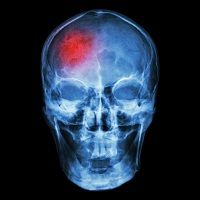Another Study Correlates Catheter Ablation with Decreased Stroke Risk
The new study joins previous works that have found a significant connection between ablation and improved outcomes in atrial fibrillation patients.

Analysis of 7 years of patient records from the Swedish Patient Register suggests that catheter ablation not only reduces the symptoms of atrial fibrillation (AF), but also reduces the risk of stroke and death for AF patients.
Investigators followed 361,913 patients, including 4,278 patients who underwent 5,176 catheter ablations during the study period. Ablation patients were younger than other patients (mean 58.7 years vs. mean 74.7 years) and they were healthier than other patients (mean CHA2DS2-VASc scores 1.5 ± 1.4 vs. 3.6 ± 1.9; P < 0.001).
Investigators corrected for these differences by using propensity score matching to construct 2 cohorts of equal size (n = 2,836) with similar characteristics in 51 dimensions. Over a mean follow-up period of 4.4 years (with a standard deviation of 2.0 years), 78 patients in the ablated group and 112 patients in the non-ablated group suffered ischemic stroke (annual rates 0.70% vs. 1.0%; P = 0.013). During that same period, 88 patients in the ablated group and 184 patients in the non-ablated group died (annual rates 0.77% versus 1.62%; P < 0.001).
After multivariable adjustment, the investigators determined that catheter ablation was associated with lower risk of ischemic stroke and a lower risk of all-cause mortality. The reduction in stroke risk associated with ablation was even greater among patients with CHA2DS2-VASc scores greater than or equal to 2.
“Ablation may be associated with lower incidence of ischemic stroke and death in patients with AF. This beneficial finding appears more pronounced in patients with higher thromboembolic risk,” the study authors wrote in the European Heart Journal.
“The apparent survival benefit was unrelated to CHA2DS2-VASc factors and anticoagulation treatment, but was strongly related to the presence or absence of recurrent DC cardioversions beyond the first 6 months after the ablation, i.e. patients who still had problems with AF after ablation… Patients without late cardioversions seemed to benefit with regard to stroke and mortality in contrast to patients who had late cardioversions who did not seem to benefit either way.”
The new study is not the first to find a significant connection between ablation and improved outcomes in AF patients.
A 2014 paper used data from Taiwan's National Health Insurance claims database to calculate that radio frequency ablation was associated with an even greater reduction in stroke, and a 2011 paper also found that ablation was associated with lower rates of stroke and death.
The authors of the new study noted several limitations in their work, including its retrospective nature, which makes it impossible to establish causation rather than merely noting associations. They called for randomized trials large enough and long enough to definitively establish whether ablations improve outcomes for AF patients.
That said, the authors of the new study asserted that their technique of matching patients provided a strong basis for comparison between ablation and non-ablation patients.
“The propensity score matching succeeded well in creating a control population that was similar to the ablated group on as many as 51 parameters by excluding >99% of the AF patients,” they wrote. “Groups that are almost identical in 51 dimensions are not likely to differ dramatically in other aspects.”
Related Coverage
Why Neighborhoods Have Stroke Zones
Comparing Ablation Strategies for Patients with Atrial Fibrillation
New Quality and Performance Measures to Support Atrial Fibrillation Guidelines